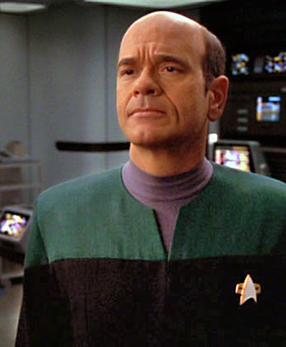One more Watson thing if you haven't read Ken Jenning's
blog on the Washington Post.
Do so it is laugh out loud funny.
Thanks - that was great! Based on that, I'm definitely going to read his books. It's cool that he isn't just an auto-answer robotic type, but actually has a great personality and funny bone.
I watched the second episode yesterday, and Watson did blow away the competition (only to blow an easy final Jeopardy question - wonder how that happened?).
But IMO what yesterday (and the first episode) showed is not that Watson is "smarter" or better at Jeopardy than a human, it showed that Watson has an edge on the buzzer somehow. ...
So IMO this has unfortunately devolved into something other than a display of human intelligence vs AI - it's a show of buzzer mechanics. What was intriguing going in, has now sadly become (more of) a sideshow IMO...
One of the blogs that clifp listed explained the final round problem - they programmed Watson to lightly weight the categories,. I didn't notice was Chicago a #2 pick for 'him'?
Yes, the whole buzzer thing is kinda distracting here. I thought today - it isn't really important if Watson is a fraction of a second slower or quicker than a human, the real value is can he be reasonably fast for the situation at hand. That might be a second or two - that could still be pretty normal conversation speed; to ten seconds if you just need an answer 'while you wait' ( compared to real life - OK, I've got that information in this pamphlet over here,- ahh, here it is...); to a minute or two (real life: let me put you on hold); to overnight (let me get back to you on that).
Now I'm curious how Watson could perform with more normal computing power that a Customer Service dept of a large company might be able to afford - It would need the language deciphering part (maybe that could be sent to a central server), but a company would need far less data in its database than what it takes to handle random game show questions.
As far as this becoming a sideshow - yes, but I bet the IBM people are thrilled with that. It's just want they want. This gets attention they couldn't buy any other way. They know it's a gimmick, they'll milk it for all it's worth and learn from it what they can and throw away the rest as the 'cost of doing business'. I think it was a brilliant sideshow. Doing additional rounds would be a bit silly, but maybe with the voice recognition as others have said - that would be good to see.
More useful but less interesting contests would AI diagnoses compared with medical doctor, AI conducts an audit vs an auditor, etc. Imagine the productivity gains. The possibilities are immense.
Yes - in this case it's coming up with what are largely single answers to searches. I would think a computer would really be powerful in calculating more complex things, once it 'understands' the question. Medical diagnoses were mentioned in the show, and I would think a computer could weigh all the inputs and pull in knowledge bases and make suggestions based on that far better than any human.
I'd like to see IBM take on the challenge of having Watson see, hear and interpret the clue as it is given verbally and visually. This is what the humans have to do, so it would be a fairer test.
+1
. It shows that the machine reasons like the human.
And that's a good thing?

Heh-heh. I recall when computers were far less powerful, and there was all this 'fuzzy logic' and AI buzz. I always thought - computers are really good at doing some things so much better than humans ( calculations, dealing with large amounts of info, etc), why not use them for what they do best, and use humans for what they do best?
Of course now, with all that past work and todays computer power, this AI stuff is getting seriously good.
-ERD50

